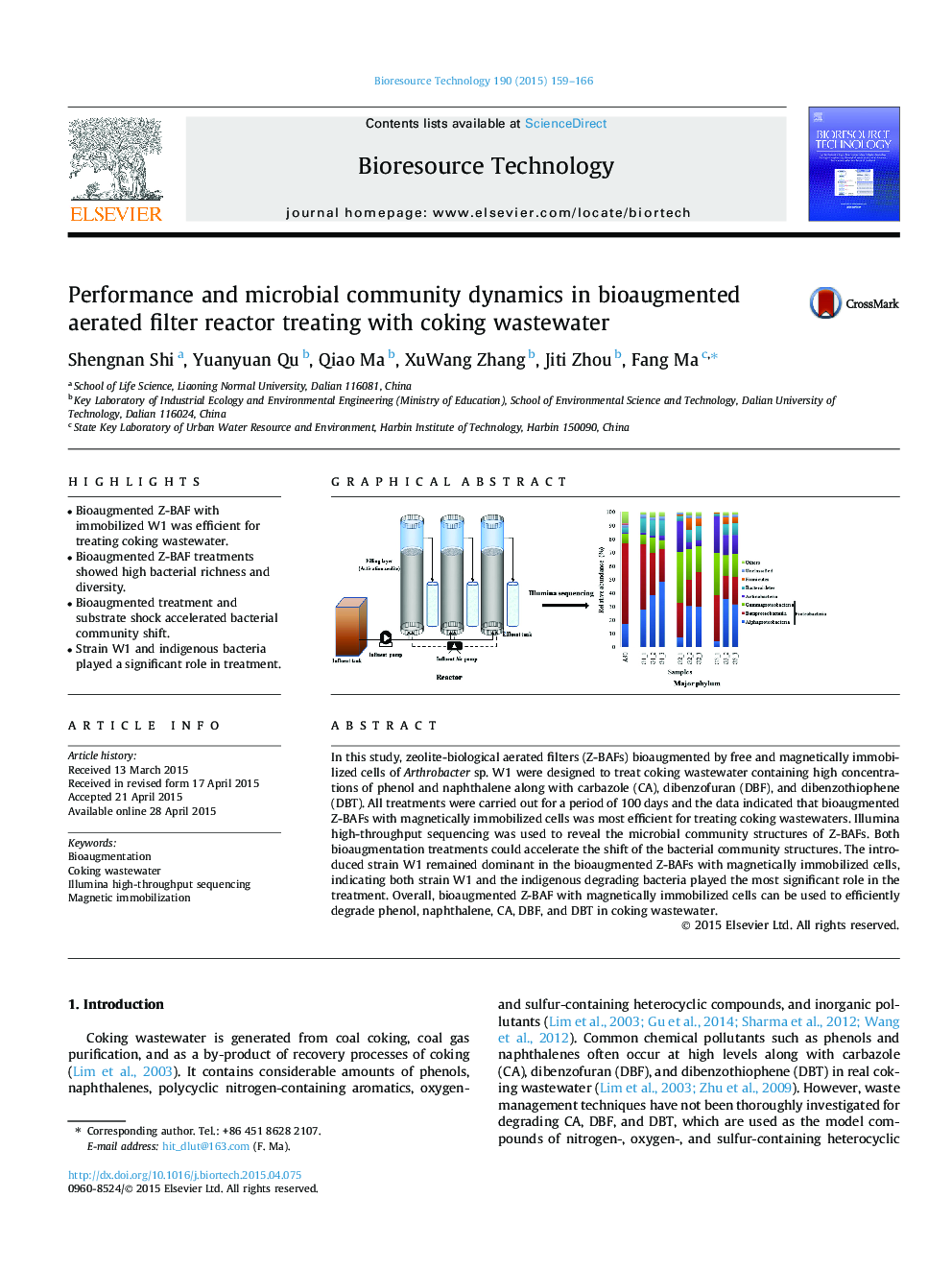| Article ID | Journal | Published Year | Pages | File Type |
|---|---|---|---|---|
| 679644 | Bioresource Technology | 2015 | 8 Pages |
•Bioaugmented Z-BAF with immobilized W1 was efficient for treating coking wastewater.•Bioaugmented Z-BAF treatments showed high bacterial richness and diversity.•Bioaugmented treatment and substrate shock accelerated bacterial community shift.•Strain W1 and indigenous bacteria played a significant role in treatment.
In this study, zeolite-biological aerated filters (Z-BAFs) bioaugmented by free and magnetically immobilized cells of Arthrobacter sp. W1 were designed to treat coking wastewater containing high concentrations of phenol and naphthalene along with carbazole (CA), dibenzofuran (DBF), and dibenzothiophene (DBT). All treatments were carried out for a period of 100 days and the data indicated that bioaugmented Z-BAFs with magnetically immobilized cells was most efficient for treating coking wastewaters. Illumina high-throughput sequencing was used to reveal the microbial community structures of Z-BAFs. Both bioaugmentation treatments could accelerate the shift of the bacterial community structures. The introduced strain W1 remained dominant in the bioaugmented Z-BAFs with magnetically immobilized cells, indicating both strain W1 and the indigenous degrading bacteria played the most significant role in the treatment. Overall, bioaugmented Z-BAF with magnetically immobilized cells can be used to efficiently degrade phenol, naphthalene, CA, DBF, and DBT in coking wastewater.
Graphical abstractFigure optionsDownload full-size imageDownload as PowerPoint slide
